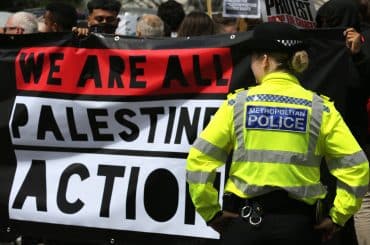This is good. Thirty years after Edward Said nailed him as an orientalist, Bernard Lewis shows how right Said was by saying in an interview with David Horovitz of the JPost that Arabs aren’t ready for democracy:
We, in the Western world particularly, tend to think of democracy in our own terms – that’s natural and normal – to mean periodic elections in our style. But I think it’s a great mistake to try and think of the Middle East in those terms and that can only lead to disastrous results, as you’ve already seen in various places. They are simply not ready for free and fair elections…
If there’s a genuinely free election – assuming that such a thing could happen – the religious parties have an immediate advantage. First, they have a network of communication through the preacher and the mosque which no other political tendency can hope to equal. Second, they use familiar language. The language of Western democracy is for the most part newly translated and not intelligible to the great masses.
In genuinely fair and free elections, [the Muslim parties] are very likely to win and I think that would be a disaster. A much better course would be a gradual development of democracy, not through general elections, but rather through local self-governing institutions. For that, there is a real tradition in the region.
Wow. Dumb, huh! And Daniel Luban has picked up on a key error in Lewis’s argument:
Lewis repeats what is supposed to be the argument-clincher against elections — the fact that “Hitler came to power in a free and fair election.”
The only problem is that this frequently-repeated “fact” is simply not true. In the final two free elections before Hitler’s rise to power, in July and November 1932, the Nazis received 38% and 33% of the vote, respectively — a plurality but not enough to bring them into government. In the 1932 presidential election, Hitler lost to Hindenburg by a wide margin.
Hitler came to power not through elections, but because Hindenburg and the circle around Hindenburg ultimately decided to appoint him chancellor in January 1933. This was the result of backroom dealing and power politics, not any kind of popular vote.

